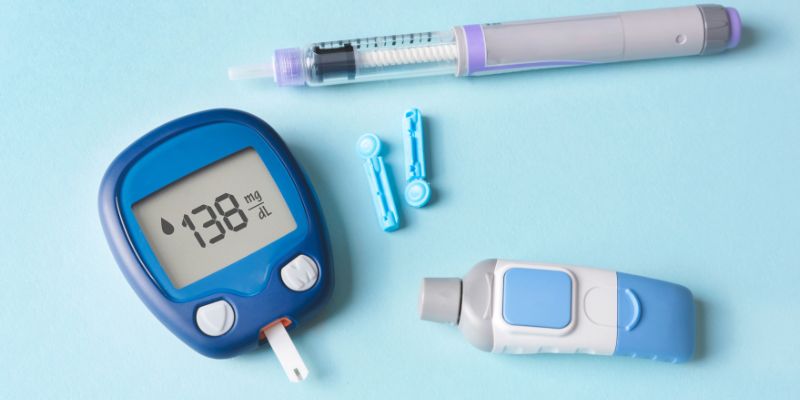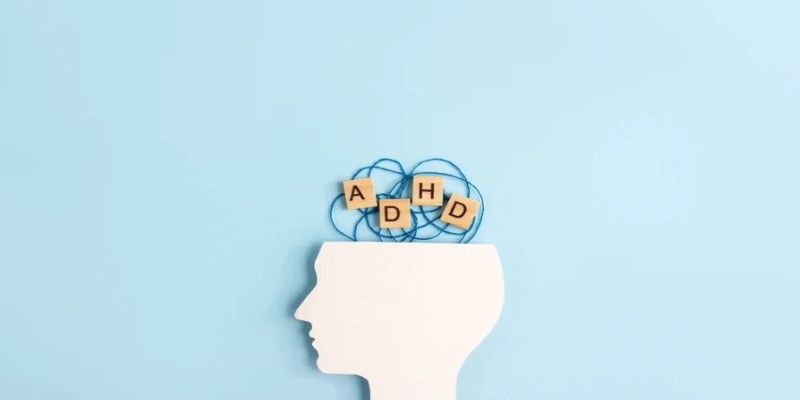Distraction Dilemma: Do You Have ADHD or Just a Short Attention Span
Have you ever found yourself staring blankly at your screen, wondering why you cant seem to concentrate? Maybe youve noticed that while others stay focused, your mind drifts to thoughts of whats for dinner or the latest social media buzz.
It's easy to brush this off as a lack of willpower, but what if its something more? Understanding the line between being easily distracted and having Attention Deficit Hyperactivity Disorder (ADHD) is crucial for managing your daily life. Lets explore the nuances of distraction and how they relate to ADHD, helping you uncover the root of your focus challenges.
Everyday Distraction vs. ADHD
Everyone experiences distraction. For example, you might lose focus during a task you're not particularly interested in, only to find yourself procrastinating on social media. Typically, if you're just easily distracted, you'll eventually notice you're off track and can refocus after taking steps to reduce distractions, such as turning off notifications or moving to a quieter space. This kind of distraction, while frustrating, usually doesnt significantly interfere with your day-to-day life.
On the other hand, ADHD-related distractions run deeper. ADHD is a neurological disorder that impairs a person's ability to maintain focus, organize tasks, or control impulses. Find that your inability to concentrate leads to problems at work, in relationships, or with completing everyday responsibilities. It might be more than just distractionADHD could be the cause. ADHD isn't simply a short attention span; it often involves more pervasive challenges with executive function, time management, and even emotional regulation.
How do ADHD and Distraction Show Up Differently?
ADHD (Attention Deficit Hyperactivity Disorder) and general distraction can present differently, although they share some common characteristics. Heres a breakdown of how they manifest:
Focus and Task Completion:
People who are simply distracted can usually return to their work once the distraction is removed. They might procrastinate, but they ultimately get the task done. ADHD makes focus much harder to sustain, even when a person wants to concentrate. They might frequently switch between tasks or leave multiple projects unfinished, not due to lack of effort but because their brain struggles to maintain attention.
Impulsivity:

With ADHD, distraction isn't always caused by external factors. Internal impulses can pull attention away from a task, causing a person to act on sudden urgeslike checking email in the middle of writing a reportwithout thinking about the consequences. This impulsivity can disrupt productivity and lead to frustration, as incomplete tasks pile up.
Time Management and Organization:
Those with ADHD often struggle with "time blindness," an inability to accurately perceive how much time has passed or how long a task will take. This leads to missed deadlines and a general feeling of always being behind. In contrast, people who are just distracted might have the skills to manage their time but occasionally let distractions get the best of them.
Sensory Overload:
ADHD can heighten sensitivity to stimuli like noise or bright lights. This sensory overload can make it even more difficult to concentrate. While easily distracted people might find noisy environments annoying, individuals with ADHD often feel overwhelmed by these inputs, further compounding their difficulties with focus.
How Is ADHD Diagnosed?
ADHD diagnosis involves a comprehensive evaluation by a qualified mental health professional, typically a psychologist or psychiatrist. The process begins with a detailed interview, during which the clinician gathers information about the individual's history, symptoms, and their impact on daily life. Standardized questionnaires and behavior rating scales are often utilized to assess the severity and duration of symptoms, which must be present from childhood and affect various aspects of life, such as school, work, and relationships. Additionally, the clinician may seek input from family members or teachers to gain a broader perspective. This thorough approach ensures an accurate diagnosis and helps rule out other conditions that may present similar symptoms.
Management and Treatment Options?
Management and treatment options for ADHD can vary widely, tailored to meet the unique needs of each individual. One of the most effective approaches involves a combination of medication and behavioral therapy.
Medication:
Stimulant medications, such as methylphenidate and amphetamines, are commonly prescribed and have been shown to improve focus and reduce impulsivity in many individuals with ADHD. Non-stimulant medications, like atomoxetine, may also be used, particularly for those who experience side effects from stimulants or have a history of substance abuse.
Behavioral Therapy:
Various therapeutic strategies can help manage ADHD symptoms. Cognitive Behavioral Therapy (CBT) is effective for addressing negative thought patterns and teaching coping strategies. Additionally, behavioral interventions can help develop organizational skills, improve time management, and reduce impulsivity.
Lifestyle Modifications:

Simple changes in daily routines can also be beneficial. Regular exercise, a balanced diet, and adequate sleep contribute to overall well-being and can improve focus and emotional regulation. Mindfulness practices, such as meditation, are increasingly recognized for their ability to enhance attention and reduce stress.
Educational Support:
For children and adolescents, special accommodations in educational settings, such as individualized education programs (IEPs) or 504 plans, can provide necessary support. These may include extended time on tests, quiet workspaces, or tailored teaching methods.
Overall, a comprehensive, individualized approach that includes professional guidance, medication, behavioral strategies, and lifestyle adjustments is often the most effective way to manage ADHD. For more detailed information, you may explore reputable mental health resources and organizations dedicated to ADHD.
Conclusion
Distinguishing between being easily distracted and having ADHD is crucial for understanding your focus challenges. If distractions are occasional and manageable, they may simply reflect the demands of modern life. However, persistent focus issues, especially when accompanied by impulsivity and organizational difficulties, warrant further exploration for ADHD.
Gaining insight into how your brain functions and implementing effective management strategies can significantly enhance your daily life. Whether you're navigating everyday distractions or addressing ADHD, understanding your unique needs is the first step toward improvement and fulfillment. Seeking professional guidance can provide valuable support on this journey.












